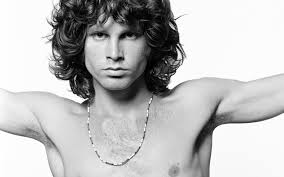 Musicians are often intriguing, popular characters who are well respected for their devotion to their craft. However, it is very common for musicians to have characteristics that they try not to let the public see: mental disorders. Mental disorders are common among all types of artists. The artistic process requires sensitivity, but sensitivity also opens doors to mental illness and chaos. Which influences which – the sensitivity or the disorder – is the chicken or the egg debate. It has simply been observed that artistry and mental disorder frequently go together. The most common mental disorders that musicians are diagnosed with are as follows.
Musicians are often intriguing, popular characters who are well respected for their devotion to their craft. However, it is very common for musicians to have characteristics that they try not to let the public see: mental disorders. Mental disorders are common among all types of artists. The artistic process requires sensitivity, but sensitivity also opens doors to mental illness and chaos. Which influences which – the sensitivity or the disorder – is the chicken or the egg debate. It has simply been observed that artistry and mental disorder frequently go together. The most common mental disorders that musicians are diagnosed with are as follows.
- Depression. This mental disorder and its relatives, such as bipolar and manic depression, are more common than any other among musicians. It may appear in a less severe form, such as a creative slump or writer’s block, or it may take hold of the musician’s life in a very severe way, affecting their ability to function on many levels. This mental disorder is very detrimental to a person’s life because it undermines all of their talent and ability with low self esteem and lack of confidence. Like any case of depression, it can become dangerous if the musician begins to have suicidal or self punishing thoughts. These cases warrant professional help and intervention.
- Anxiety. Nervous conditions such as anxiety, panic attacks and forms of neurosis are common to musicians. In the tradition of artist’s mental problems, anxiety disorders also develop out of an artist’s sensitive nature. In these cases, an artist’s sensitivity makes them overly aware of the environment around them. They become tuned in to small details and nuances that other people do not pick up on. This increases their artistic abilities but also magnifies the negative things around them, making them anxious and neurotic.
- Attention disorders. Also known as executive function disorders, attention problems such as attention deficit disorder and attention deficit hyperactivity disorder are frequently connected to musicians. A musician’s creative brain can frequently be much more developed than their organized brain, in many cases. The brilliant musician who cannot manage the basic responsibilities of their life is a common but accurate stereotype.
